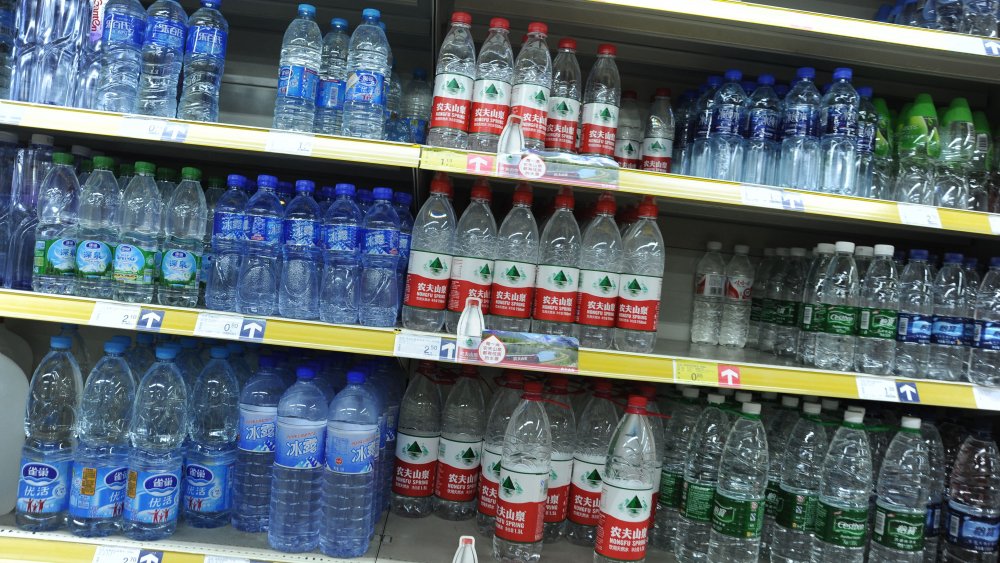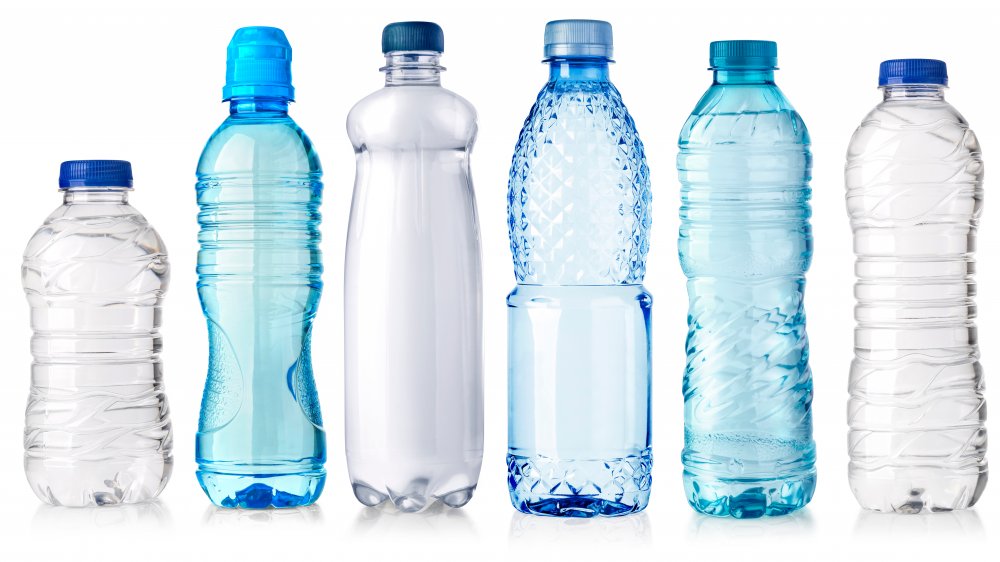Why Different Bottled Water Brands Taste Different
Take a walk down the water aisle at your grocery store and you're likely to be blown away by the selection. And it though the number of brands may seem wildly high, it stands to reason that they may very well taste a bit different from one another.
Bottled waters are actually quite different in taste. They're so different, in fact, that there's such a thing as a water sommelier, who is employed by several high-end restaurants in Los Angeles (via Cooks Illustrated). Since Fiji and Evian, for example, are bottled on opposite sides of the planet, it makes sense that they might have different flavor profiles.
Take Fiji with its tropically-themed bottle, for example. It is bottled on the island nation of Fiji, and comes from an aquifer that filters the water through volcanic rock (via Fiji). The water's journey through the porous volcanic rock allows it to gather minerals and electrolytes along the way, enhancing the taste, which the company describes as soft and smooth. Fiji is consistently ranked as one of the best tasting bottled waters in taste tests and the price reflects it (via Product Playoffs).
Mineral water and purified tap water taste different
However, there are natural springs all over the world, not just in Oceania. Evian, for example, comes from natural springs in the French Alps. Naturally occurring electrolytes and minerals are found in the water, and because of them, Evian has a very distinctive mineral-y taste.
But not all bottled water from natural springs is fancy with a hint of minerals on the palate. Arrowhead is one of the most recognizable (and cheap) brands of bottled water, which comes from mountain springs in California, Colorado, and Canada, and its website makes no mention of minerals (via Arrowhead).
On the other hand, there are bottled water brands such as Dasani, which is simply a purified tap water with added minerals such as salt, magnesium sulfate, and potassium chloride to enhance flavor (via WellnessOne of Redding). Of course, there's reason to expect this water taken from the tap at the Coca-Cola factory to taste different than a water coming from an aquifer on a tropical island.

